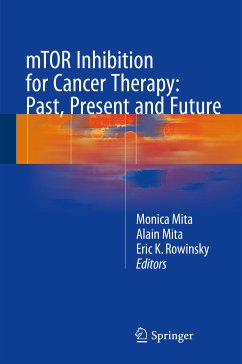This book describes the challenges involved in developing mTOR inhibitors for cancer treatment, starting with an in-depth examination of their molecular mechanism of action, with emphasis on the class side-effects, efficacy and mechanisms of resistance, as well as on promising novel directions for their development, including novel compounds and rational combinations with other anti-neoplastic drugs.
Over the last 10 years, inhibitors of mTOR have emerged as a major class of anticancer drugs. Two rapamycin analogs are currently approved for the treatment of renal cell carcinoma, and it is estimated that a variety of other tumor types could benefit from mTOR inhibition, with numerous clinical trials (including pivotal registration trials) already underway. Second-generation small-molecule inhibitors of the pathway have also shown promise in terms of their superior tolerability and efficacy and are undergoing extensive clinical evaluation, with an estimated 30+ compounds currently under evaluation.
Dieser Download kann aus rechtlichen Gründen nur mit Rechnungsadresse in A, B, BG, CY, CZ, D, DK, EW, E, FIN, F, GR, HR, H, IRL, I, LT, L, LR, M, NL, PL, P, R, S, SLO, SK ausgeliefert werden.









